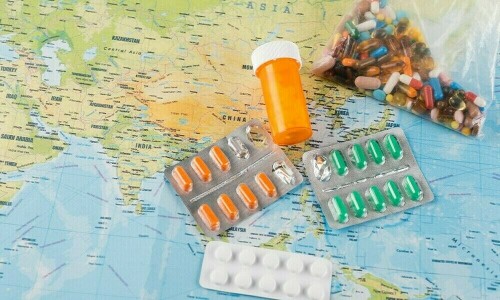Pharmaceutical Exports Surge After Deregulation, Claims PPMA
ISLAMABAD: Following the government’s decision to ease regulations in the pharmaceutical sector, the Pakistan Pharmaceutical Manufacturers Association (PPMA) has reported a 52% increase in sectoral exports within the last year.
PPMA Chairman Tauqeerul Haq, along with a delegation, met with Federal Minister for Health Mustafa Kamal to explore ways to deepen cooperation between the government and the national pharmaceutical industry.
The primary focus of the meeting was to bolster collaboration and tackle the difficulties encountered by the pharmaceutical manufacturing sector. The delegation updated the minister on the industry’s achievements and recent progress.
Tauqeerul Haq stated that Pakistan has seen a 52% surge in pharmaceutical exports since July 2024. He attributed this expansion to the government’s deregulation policies, which have brought stability to the sector and curbed medicine shortages.
The delegation highlighted that 90% of the medications available locally are produced within the country, with a considerable portion meeting export standards.
Minister Kamal’s Vision for Healthcare Improvement
Kamal outlined his strategy for upgrading Pakistan’s healthcare infrastructure. He acknowledged the present system’s constraints, remarking, “The government alone cannot cater to the healthcare requirements of every citizen.”
He emphasized that the lack of functional primary healthcare facilities and referral systems places undue strain on tertiary hospitals. “A significant percentage of patients who should receive care at Basic Health Units (BHUs) are seen at major hospitals,” he noted.
Kamal stressed that telemedicine holds the key to addressing these issues. “With a large segment of the population already embracing technology, telemedicine can alleviate the pressure on hospitals. We are developing a comprehensive plan for its implementation,” he elaborated.
He urged the pharmaceutical industry to actively support telemedicine, pledging full government assistance. The minister also announced a significant reform to integrate technology into healthcare, stating, “With NADRA’s support, the national ID number will now double as a patient’s Medical Record (MR) number.”
Mustafa Kamal unveiled future plans, stating, “We aim to deliver doctors and medicines directly to people’s homes soon.” He recognized the flaws in Pakistan’s current healthcare setup but reaffirmed the government’s dedication to utilizing technology to deliver enhanced and more accessible healthcare options.
Combating Counterfeit Medicines
The minister emphasized the government’s commitment, both at the federal and provincial levels, to eradicate counterfeit and substandard medicines. He advocated for the use of QR codes to guarantee the accessibility of secure, reliable, superior, and reasonably priced medicines for the general public.
“Fake medicines damage our nation’s and companies’ reputations,” Kamal warned, prompting pharmaceutical companies to enforce stringent measures.
“These roles are a divine responsibility, and we will be held accountable,” the minister remarked. “People seek our help in times of distress, and this ministry is not an easy task—it is a trial, and I am committed to facing it with honesty and accountability.”



Comments (0)
No comments yet. Be the first to comment!
Leave a Comment